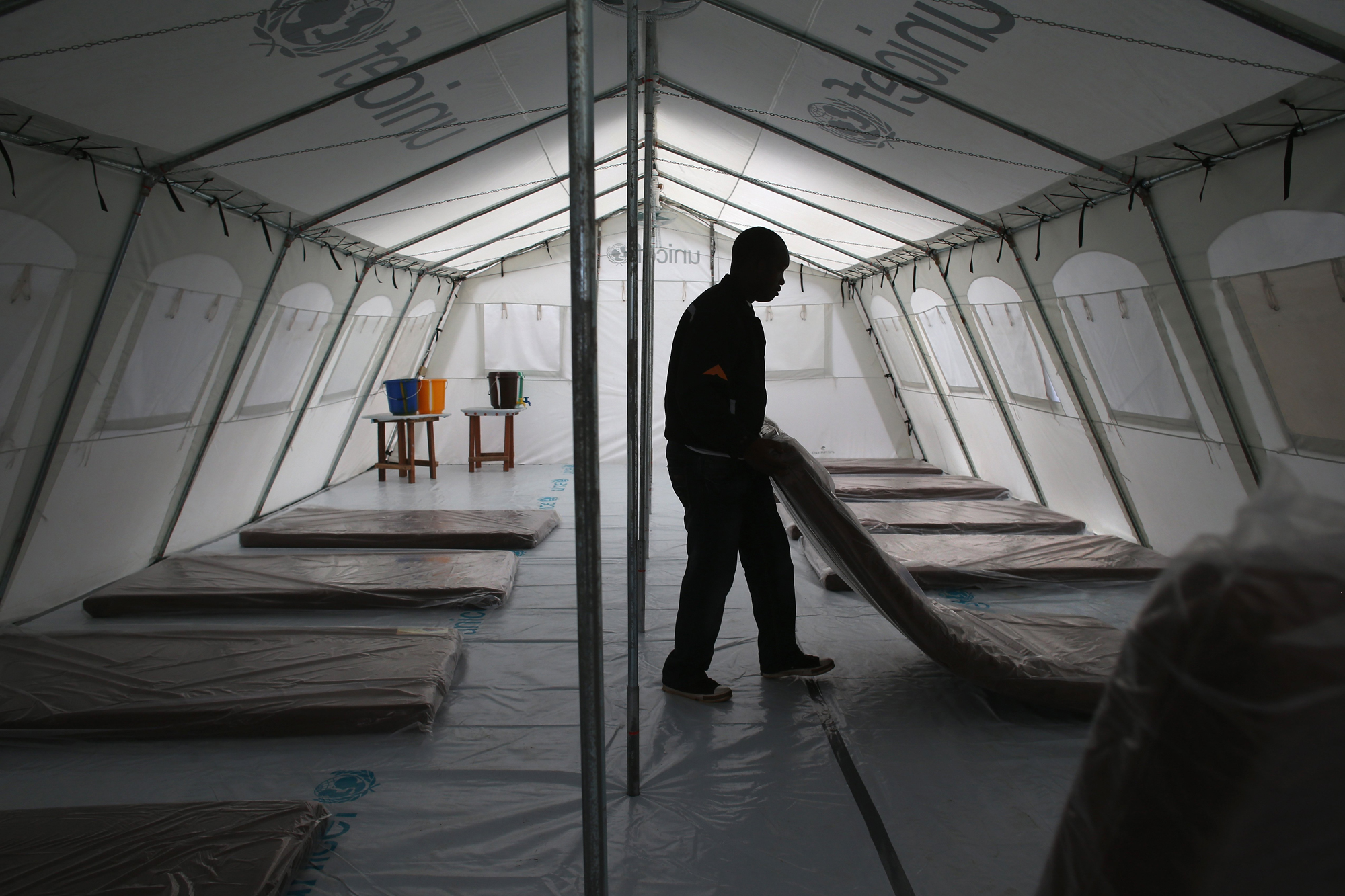
Entire families are being wiped out. Health workers are dying by the dozens. The Ebola outbreak raging in Guinea, Liberia and Sierra Leone has already killed more people than any other in history, and it continues to spread unabated.
And the death toll is being exacerbated by an emergency unfolding within an emergency.
People are also dying from easily preventable and treatable diseases like malaria and diarrhea because fear of contamination has closed medical facilities, leading to the effective collapse of health systems. While I was in Liberia last week, six pregnant women lost their babies over the course of a single day for lack of a hospital to admit them and manage their complications.
Over the past two weeks, there have been some welcome signs but not enough action: the World Health Organization (WHO) declared the outbreak a “Public Health Emergency of International Concern” and announced additional funds to fight the disease; the World Bank announced a $200 million emergency fund; and the UN Secretary General appointed a special envoy for Ebola.
But 1,350 lives have already been lost. To prevent more deaths, these funding and political initiatives must be translated into immediate, effective action on the ground.
We need medical and emergency relief workers to trace those who may be infected, to educate people about protection measures and to work in treatment centers. Many more people are needed in the field, right now.
Doctors Without Borders/Médecins Sans Frontières (MSF) medical teams have treated more than 900 patients in Guinea, Sierra Leone and Liberia. We have 1,086 staff operating in these countries and we have just opened a 120-bed treatment center in Liberia’s capital, Monrovia, making it by far the largest Ebola center in history. But it is already overwhelmed with patients and we simply do not have additional response capacity. Others must enter the breach.
In Kailahun, Sierra Leone, 2,000 people who came into contact with Ebola patients must be urgently followed up. But we have only been able to trace about 200 of them.
Health promotion campaigns and body collections are stalled for lack of vehicles or fuel. Epidemiologists are unable to work because of a lack of logistical support. And pervasive fears among communities that had never encountered Ebola have provoked riots against health workers.
The epidemic will not be contained without a massive deployment on the ground. WHO in particular must step up to the challenge. And governments with the necessary medical and logistical resources must go beyond funding pledges and immediately dispatch infectious disease experts and disaster relief assets to the region.
Additional resources are needed to properly map the epidemic, implement efficient general hygiene measures in all medical and public places, run safe treatment centers, trace suspected cases, train health workers, set up functioning alert and referral systems and, crucially, spread accurate information about how people can protect themselves from infection.
Equally important is fighting fear. Quarantines and curfews will only breed more of it. People need to have access to information, otherwise distrust of health workers will only increase and provoke further violence. Communities and governments need to work together to control the epidemic and care for the sick.
Some measure of humanity must also be restored in the fight against Ebola.
As doctors, we have been forced to provide little more than palliative care because of the sheer number of infected people and lack of an available cure. The extreme measures needed to protect health workers, including wearing stifling protective suits, also means we cannot remain bedside with patients to ease their suffering, or allow family members to do so. In their final hours, many people are dying alone.
While we try to find creative solutions to enable families to communicate with their sick relatives, they should at minimum be supported to participate safely in the burials of loved ones. This would also help rebuild trust between communities and those trying to contain the epidemic.
At the same time, additional support is needed to prevent health systems in Liberia and Sierra Leone from further collapse. After years of civil war, these countries already struggle to meet the basic health needs of their people, let alone cope with a public health emergency of this magnitude. Sierra Leone and Liberia, for instance, have just 0.2 and 0.1 doctors per 10,000 people, respectively (a rate 240 times less than in the United States).
Last week, all of Monrovia’s hospitals were at one point closed. There is no surgical care available in the entire country right now. Pregnant women cannot receive emergency C-sections. Health facilities must be re-opened or established to treat common illnesses. We will otherwise face a second wave of this health catastrophe.
Slowing and then halting this outbreak requires much more than money and statements. The only way to contain the epidemic is to increase the response capacity in affected areas, not by closing borders and suspending air travel.
Meaningful and coordinated action is needed on the ground today if we don’t want to be reduced to counting the dead for many weeks to come, whether from Ebola or other far less sinister diseases.
Dr. Joanne Liu is the international president of Doctors Without Borders/Médecins Sans Frontières (MSF).
More Must-Reads from TIME
- Why Trump’s Message Worked on Latino Men
- What Trump’s Win Could Mean for Housing
- The 100 Must-Read Books of 2024
- Sleep Doctors Share the 1 Tip That’s Changed Their Lives
- Column: Let’s Bring Back Romance
- What It’s Like to Have Long COVID As a Kid
- FX’s Say Nothing Is the Must-Watch Political Thriller of 2024
- Merle Bombardieri Is Helping People Make the Baby Decision
Contact us at letters@time.com